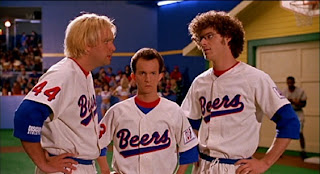Having recently finished the last captivating series of Mad Men, I was slightly perturbed to read an acerbic – yet eminently readable – essay on the programme, by American critic Daniel Mendelsohn. Although hearing the programme being discussed, dissected and discounted did manage to bring the programme’s strengths, weaknesses and brilliance into a sharper focus for me. Because I definitely don’t watch it for the stylized version of the sixties it provides, as the writer seems to infer everyone does.
That is not to say that Mendelsohn does not make some interesting and salient points about the show, prime among which is his assertion that it gives a child’s-eye view of the sixties, which at times borders on fetishization. But, in saying that Mad Men is “melodramatic rather than dramatic”, a “soap opera decked in high-end clothes” and that the “plotting is haphazard and often preposterous”, he is, in my humble opinion, resoundingly wrong. For even if Don Draper’s hick past is a little clumsily staged and some characters appear suddenly, that is the nature of the television beast.
Sure there are times when the parachuting of characters into the action seems like a ploy to introduce a new theme and it can often seem a little issue driven; but this happens in all TV series, especially The Wire, which is mentioned. The Sopranos, which Mendelsohn rightly holds up as a prime example classic TV and which I have discussed in this blog, was as guilty of random character introduction as any other series, albeit in a different way. Steve Buscemi’s Tony Blundetto or John Pantoliano’s Ralphie Cifaretto, two men close to the Soprano clan who appear unannounced (and with no prior mention) at the start of different series, are obvious examples of this. Anyway, the exploration of themes or issues does not get in the way of Mad Men’s slow burning appeal; it is still entertaining, periodically shocking, earnest and fun.
The acting, to my mind, is also great. The Emmys and Golden Globes don’t lie in this respect and I don’t really get how it is “amateurish”. John Hamm is especially good in this season as his palette has actually expanded to include the occasional smile and he has more than enough happen to him to foment his inner anguish. I find his portrayal believable, not “remarkably vacant”, and that is what counts.
The characters are genuinely nuanced, not all the same and characterized with the broad strokes that Mendelsohn describes. It is a genuine strength of Mad Men that you can’t really guess what might happen next and it is a triumph that nearly all is believable. The fact that you only see the private life of a few characters is the source of this unpredictability.
For those who haven’t yet seen Mad Men – watch the first season and make your own mind up. But I warn you: start watching it and you won’t be happy until you have seen it all. Aside from Breaking Bad, it may well be the best drama currently on telly, whatever Daniel Mendelsohn says.
















